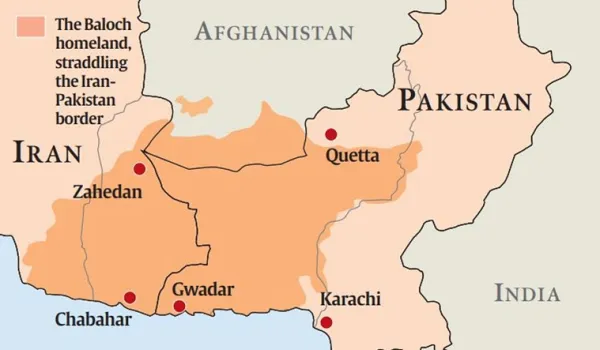Anwaar-ul-Haq Kakar, the former caretaker Prime Minister of Pakistan, has said that Baloch nationalist groups have successfully extended their armed conflict to regions including Makran, Gwadar, and Bela.
In an interview with a private TV channel, Kakar discussed the historical context of political movements in Balochistan. He claimed there was no significant independence movement in the region, apart from the Marri tribe’s armed conflict in the 1970s.
Kakar explained that historically, Balochistan consisted of five main regions: the States of Kalat, Kharan, Bela, and Makran, along with British Balochistan, which encompassed areas such as the Pashtun Belt, Kohlu, Dera Bugti, and Taftan.
He noted that regional leaders like the Nawab of Kharan, Abdul Rahman Naushirwani, Jam Ghulam Qadir of Bela, and Bhai Khan Gichki of Makran were among the first to sign documents supporting accession to Pakistan. He added that the late Nawab Akbar Bugti also voted in favor of joining Pakistan.
However, Kakar mentioned that the Kalat National Party later passed a resolution opposing the inclusion of the State of Kalat in Pakistan. He stated that Ghous Bakhsh Bizenjo, a founding member of the party, advocated for the state to remain part of a united India.
Reflecting on the spread of the conflict, Kakar argued that the Marri tribe actively fought against the state in the 1970s. “They decided that this time they would start a conflict against the state of Pakistan and extend this war to wherever Baloch tribes exist, from Makran to Gwadar and Bela,” Kakar said, adding that, in his opinion, “they have been successful in doing so.”
The State’s Authority Has Come to an End: Rehman
Separately, Maulana Fazal-ur-Rehman, head of Jamiat Ulema-e-Islam (JUI-F), spoke about the current situation in Balochistan and Khyber Pakhtunkhwa.
Speaking to journalists on Wednesday, Rehman claimed that armed groups now hold significant control over both regions. “The state’s authority has come to an end,” he said.
Rahman criticized what he described as the exclusion of nationalist and religious parties from the political process. He alleged that nationalist political parties have been marginalized in Balochistan, while religious parties have been sidelined in Khyber Pakhtunkhwa through alleged electoral rigging.

